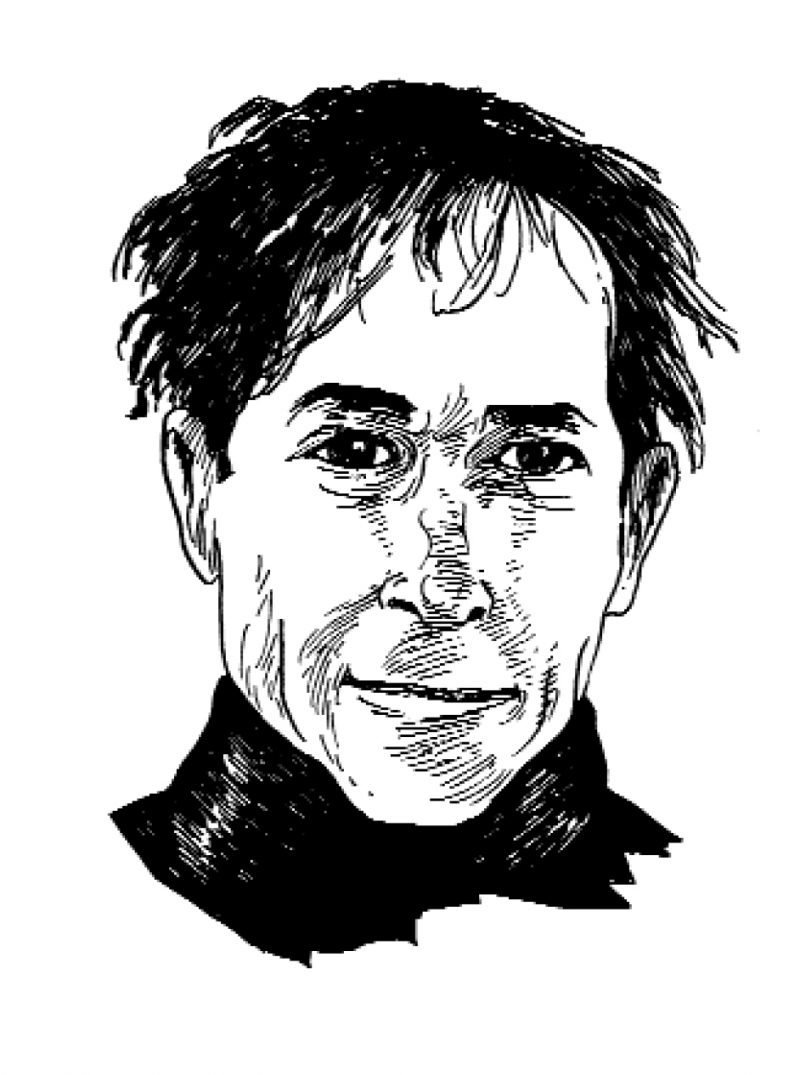Los Angeles-based writer Benjamin Weissman gets up so early that he’s forced to read the New York Times by streetlamp while taking his dogs for a walk. The ironies of a man in his pajamas absorbing the horrific news of the world are not lost on him. In a story from his most recent collection, Headless (Akashic, 2004), a narrator proclaims, “I am commander-in-chief of Saturday morning.” Patriarchy and political delusion runnel together, and even world doom shows its comic edge.
By 7 a.m., Weissman has finished his daily three-hour investigation of violence, fathers, omnipotence, skiing, sexual deviance, Hitler, and Teutonic absurdity, among other fictional themes. Then he draws until noon (he’s also an internationally shown artist and art critic). In the afternoons, he teaches at most of the universities within fifty miles of his home. Evenings, he plays a punishing game of tennis and is rumored to be a serial killer on the court (opponents lose badly, enroll in anger management classes or take Paxil). A comment he’s been heard to make: “If you are going to do anything, whatever it is, why not do it completely and all the way?”
You have reached your article limit
Sign up for a digital subscription and continue reading all new issues, plus our entire archives, for just $1.50/month.
Already a subscriber? Sign in





